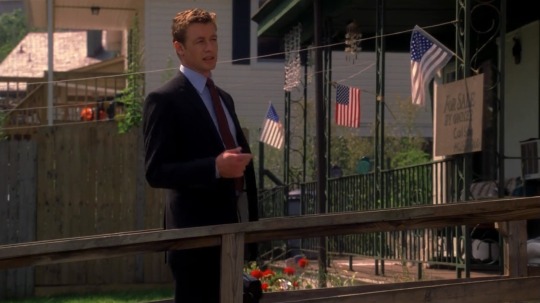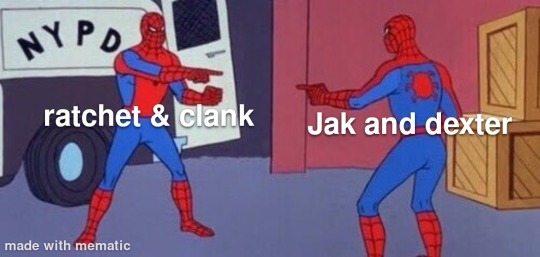#big coal
Text







The Guardian (TV Series)
S3/E2 ’Big Coal’ (2003) - M. Emmet Walsh
[photoset #4 of 4]
16 notes
·
View notes
Text
The Environmental Protection Agency unveiled a new proposal Thursday to cut greenhouse gas emissions from thousands of power plants burning coal or natural gas, two of the top sources of electricity across the United States. Sen. Joe Manchin (D-W.Va.), criticizing the “radical” proposal, issued his own scorched earth ultimatum on Wednesday ahead of the announcement.
Manchin, chair of the Senate Energy Committee and the top recipient of contributions from the oil and gas industry during the 2022 election cycle, vowed Wednesday to oppose every one of President Joe Biden’s nominees for the EPA “until they halt their government overreach.”
“This Administration is determined to advance its radical climate agenda and has made it clear they are hellbent on doing everything in their power to regulate coal and gas-fueled power plants out of existence, no matter the cost to energy security and reliability,” Manchin wrote in a statement released Wednesday.

The EPA proposal would require most fossil fuel-fired power plants to slash their greenhouse emissions by 90% between 2023 and 2040. The EPA projects the emissions reduction would deliver up to $85 billion in climate and health benefits over the next two decades by heading off premature deaths, emergency room visits, asthma attacks, school absences and lost workdays.
“Alongside historic investment taking place across America in clean energy manufacturing and deployment, these proposals will help deliver tremendous benefits to the American people — cutting climate pollution and other harmful pollutants, protecting people’s health, and driving American innovation,” EPA Administrator Michael Regan said in a statement issued Thursday.
By 2035, the Biden administration aims to shift all electricity in the U.S. to zero-emission sources including wind, solar, nuclear and hydropower, Roll Call reported. In a written statement, Manchin warned the administration’s “commitment to their extreme ideology overshadows their responsibility to ensure long-lasting energy and economic security.”
Manchin is up for reelection during the 2024 election cycle, but he has not yet announced whether he will run.
Last month, West Virginia Gov. Jim Justice (R) announced his campaign for Manchin’s seat. The Democrat-turned-Republican is among the most popular governors in the country and leads a state former President Donald Trump won by nearly 40 percentage points in 2020.
Manchin has hammered the Biden administration in recent weeks for its implementation of the Inflation Reduction Act, the president’s signature climate change bill that the Democratic senator was instrumental in shaping.
“Neither the Bipartisan Infrastructure Law nor the IRA gave new authority to regulate power plant emission standards. However, I fear that this Administration’s commitment to their extreme ideology overshadows their responsibility to ensure long-lasting energy and economic security and I will oppose all EPA nominees until they halt their government overreach,” Manchin said in his Wednesday statement.
What Manchin did not disclose in his statement, however, is that the EPA proposal would jeopardize one West Virginia coal facility that’s particularly lucrative for Manchin’s family business, Enersystems Inc., POLITICO reported. Enersystems delivers waste coal to the Grant Town power plant, which was reportedly already struggling financially, troubles that are expected to deepen with the strict new climate proposal.
Manchin personally received $537,000 from Enersystems last year, according to POLITICO’s analysis of personal financial disclosures filed with the U.S. Senate, and he has been paid more than $5 million by the company since he was first elected in 2010. His son, Joe Manchin IV, now runs Enersystems. The Senator’s campaign has also benefited from political contributions from Enersystems, OpenSecrets reported last year.
“This is going to make it harder for them to stay around. You won’t find written anywhere in the rule that this is supposed to be putting coal plants out of business, but just do the math,” Brian Murray, director of the Nicholas Institute for Energy, Environment & Sustainability at Duke University, told POLITICO.
In 2020, Manchin’s home state of West Virginia generated about 90% of its power from coal, according to the U.S. Energy Information Administration. By contrast, less than 20% of the energy generated nationally comes from coal. Many states, including neighboring Virginia, are phasing out coal by replacing it with natural gas.
While the U.S. may show signs of moving away from coal, the Federal Energy Regulatory Commission told the Senate Energy Committee earlier this month that the country was not prepared to abandon coal and maintain a reliable energy system.
“Coal is more dependable than gas and yes, we need to keep coal generation available for the foreseeable future,” said Commissioner Mark Christie.
Manchin took another swipe at the EPA on Thursday during an energy committee hearing on permitting reform, when he accused the agency of preventing the development of carbon capture technology by denying companies the permits they need to trap captured carbon underground.
“Don’t tell me that you’re going to invest in carbon capture sequestration when we can’t get a permit to basically sequester the carbon captured,” Manchin said. “This is the game that’s being played. I know it, they know I know it, and we’re not gonna let them get away with it.”
#us politics#news#opensecrets#Environmental Protection Agency#sen. joe manchin#west virginia#Senate Energy Committee#biden administration#president joe biden#2023#clean energy#green energy#natural gas#coal#big coal#fossil fuels#fossil fuel industry#Michael Regan#roll call#Gov. Jim Justice#Inflation Reduction Act#infrastructure bill#infrastructure reform#Enersystems Inc.#politico#U.S. Energy Information Administration#Federal Energy Regulatory Commission
56 notes
·
View notes
Text
youtube
Why You Can't Ignore This Far-Right Trend
#capitalism#fossil fascism#big oil#big coal#neofascism#far right#ecocide#ecofascism#crisis of legitimacy#climate change#immigration#migrants#white supremacy#racism
2 notes
·
View notes
Photo

Leviathan
#i really like all sorts of industrial mechanical construct thingies#aesthetically#when i was a kid i used to go to the big bridge by the sea#in the snow storm#and take pics of the coal ships with my old ass clam phone#i'd take off one glove at a time to use the phone and switch hands#so they wouldn't freeze#there's something about rusty metal
6K notes
·
View notes
Text

my favorite fae-cursed war criminals……
as cats bc i have yet to brush up on humanoid anatomy

this version has kremy’s silver eyes thats really the only difference
[ also no pigtunia bc i forgor :( ]
#yes kremy is a hairless tuxedo cat i will sit on this hill#twig’s design tho gave me trouble i wanted her to have big goggle eyes but i couldn’t really translate that well here#in this somewhat au hootsie is just a baby owl or like a pygmy owl#legends of avantris#once upon a witchlight#loa art#ouaw art#morning frost#gricko grimgrin#hootsie grimgrin#kremy lecroux#gideon coal#torbek#ouaw twig#zibs art#talking cat#RIP the quality ugh#i hate you tumblr compression#once upon a catlight
200 notes
·
View notes
Text
finally drew the big guy lmao :)
he was pretty difficult to simplify, but i think i did a pretty good job


#legends of avantris#loa#once upon a witchlight#ouaw#gideon coal#i think the beard was trippin me up#hes also just so big#like fucking massive#im talkin gigananormous#hes very silly
94 notes
·
View notes
Text
is this anything

standard practice

bubble bath for torbek, stupid hawaiian shirt for torbek (i didnt draw a pattern you just have to imagine), bow in hair for torbek

working hard

and the full thing

#the breast reduction meme is so fucking funny i think about it frequently like. who came up with this#i think torbek deserves to be pampered. big ass bubble bath with rubber ducky be upon ye#of course kremy and gideon sleep together in the same bed its nothing weird it just saves money. on mattresses and bed frames and blankets#and pillows. obviously#need to learn how to draw hootsie i feel bad because i never draw her <//3#art#my art#drawing#fanart#digital art#legends of avantris#avantris#this isnt my best work i just wanted to post something tbh#i didnt catch the stream wednesday so no spoilers please 🙏🙏#after i watch it i will probably have something to post. maybe#oh anyway continuing with tags#ouaw#once upon a witchlight#kremy lecroux#gideon coal#coalecroux
88 notes
·
View notes
Text
#corporate greed#big oil#pollution#air pollution#climate and environment#climate change#global warming#republican assholes#oligarch assholes#fuck big oil#fuck coal#fuck Joe Manchin
55 notes
·
View notes
Text
Something something the Crane Wives release a canary in a coal mine pin
Something something the canary curse is broken
Something something not only is the curse broken it died in its cage
Something something in death it is now free and is no longer under the watchful gaze of others
Something something the canary is free to sing without warning and no longer has to light the way into the afterlife

#big thoughts here#the crane wives#secret life spoilers#secret life#life series#jimmy solidarity#solidaritygaming#the canary curse#canary in a coal mine
72 notes
·
View notes
Text

so.. smiles. anyone remember my golden age boxing au?
#UH to recap:#Ludwig came to the US with his brother Gilbert#Gilbert working the steel mill coal mines dock (hard work labour insert)#Ludwig gets offered boxing or sowmthing n he’s like NO I am not beating someone up for entertainment#then Gilbert hurts his foot n jumps around on a broke lidl cane n Ludwig is like FINE I’ll box#anyway#the Vargas family is a big mob family n grandpa Roma does some boxing matches rigging on the side#for fun u know#Lovino n Feliciano aren’t involved tho (or are they Vine boom sound effect)#they own a tailor shop and it’s a legal business OR IS IT (vine boom sound effect x2)#not to go all GerIta on your ass but they see each other for da first time when feli is invited to one of Ludwig’s boxing matches#n then they have crazy retro gay sex#hetalia#hws Veneziano#hws Germany#GerIta#Feliciano Vargas#ludwig beilschmidt#hws Italy#hws north Italy#hws south Italy#hws Romano#uh Romano also has a story#crushing on his grandpas leg breaker (Antonio) whose a few years older#but Antonio is having intercourse with a Dutch dock worker#999art
142 notes
·
View notes
Photo







The Guardian (TV Series)
S3/E2 ’Big Coal’ (2003) - M. Emmet Walsh
[photoset #3 of 4]
#The Guardian#tv series#Big Coal#Simon Baker#M. Emmet Walsh#actor#casual dress#american actor#screenshots#sitting
23 notes
·
View notes
Text
West Virginia v. Environmental Protection Agency strikes down a federal environmental regulation of power plants that never took effect, that the Biden administration has no intention of reinstating, and that would have accomplished absolutely nothing even if it had be enforced.
Nevertheless, the Court voted along ideological lines to strike down this regulation that the EPA drafted under authority granted by the Clean Air Act, claiming that it amounts to an “extraordinary” overreach by the EPA. And their decision has enormous implications both for the environment and for the federal government more broadly.
At the very least, the West Virginia decision strips the EPA of its authority to shift energy production away from dirty coal-fired plants and toward cleaner methods of energy production — although market forces have thus far accomplished much of this shift on their own, because coal-fired plants are often more expensive to operate than cleaner plants. The decision could also lead to additions limits on the EPA’s ability to regulate that industry going forward.
The West Virginia decision confirms something that has been implicit in the Supreme Court’s recent decisions governing federal agencies’ power to issue binding regulations under authority granted by Congress: When a majority of the Supreme Court disagrees with a regulation pushed out by a federal agency, the Court has given itself the power to veto that regulation — and it will do so by invoking something known as the “major questions doctrine.”
Under this doctrine, the Court explained in a 2014 opinion, “we expect Congress to speak clearly if it wishes to assign to an agency decisions of vast ‘economic and political significance.’” Thus, if a majority of the Court deems a regulation to be too significant, it will strike it down unless Congress very explicitly authorized that particular regulation.
This doctrine comes from nowhere. Last week, the Court said that abortion is unprotected by the Constitution — leaning heavily on the fact that abortion is not mentioned in the Constitution. But the the major questions doctrine is also mentioned nowhere in the Constitution. Nor can it be found in any statute. The justices made it up. And, at least during President Joe Biden’s administration, the Court has wielded it quite aggressively to veto regulations that the Court’s conservative majority finds objectionable.
Roberts’s majority opinion in West Virginia does put some flesh on the fairly bare bones the Justices have previously used to describe when they will declare something to be a “major question.” Roberts faults the EPA for issuing a novel kind of regulation pursuant to a “long-extant” statute that had not previously been used to justify similar actions. He claims that the EPA relied on an “ancillary provision” of the Clean Air Act, rather than a more central provision of that law. And he criticizes the EPA for issuing a regulation which resembles bills that Congress previously considered but did not enact.
But these judgments are divorced from the text of the Clean Air Act itself. And Roberts admits that the major questions doctrine can nuke a regulation even when there is a “colorable textual basis” supporting that regulation — that is, when the actual words of a federal law could support the action taken by a federal agency.
The bottom line after the West Virginia decision is that agencies may still exercise regulatory authority, but only subject to a judicial veto. The Supreme Court has effectively placed itself at the head of much of the executive branch of the federal government.
FEDERAL REGULATIONS, BRIEFLY EXPLAINED
When Congress wishes to regulate businesses or private individuals, it can do so in two ways. One way is that it can simply command a person or industry to conduct business in a specific way. Congress may, for example, order health insurers to cover people with preexisting conditions. It may require employers to pay a minimum wage. Or it could insist that all power plants to install a particular device that reduces carbon emissions.
The problem with this direct approach, however, is that when Congress issues such a specific command, it can only change that command by enacting a new federal law. Suppose, for example, that Congress had passed a law in 1978 requiring coal-fired plants to install a particular device to reduce pollution. That device would almost certainly be obsolete today. Indeed, it could potentially interfere with more recent technology that would do a much better job of limiting emissions.
So Congress also has the power to delegate regulatory authority to a federal agency: laying out a broad policy goal that the agency must try to solve, then giving the agency a fair amount of discretion to determine, in its own expert opinion, how to solve it. This allows federal law to be more adaptive, with regulations shifting as new facts justify updated rules.
Congress, for example, could not have known in 2010, when the Affordable Care Act became law, that a deadly new disease would emerge in 2019 that would paralyze much of the world economy until vaccines made it safe for most people to emerge from their homes. But COVID-19 vaccines are still covered by health insurance, partly because the Affordable Care Act contains a provision requiring the Department of Health and Human Services to maintain a list of vaccines that health insurers must cover — while also permitting HHS to add new vaccines to this list as new diseases and immunizations emerge.
The provision of the Clean Air Act at the heart of the West Virginia case functions similarly. It requires certain power plants to use the “best system of emission reduction” that can be achieved with currently available technology, while also accounting for factors like cost. The EPA, meanwhile, has the authority to determine what the “best system” is at any given moment, and it can issue new regulations requiring energy companies to adopt new systems as technology advances.
The Court’s decision in West Virginia does not strip the EPA of this authority entirely — the agency might still be able to require coal-fired plants to install certain devices, for example — but it drastically reduces the EPA’s power. And it warns the EPA — and every other federal agency — against using its regulatory power in new ways, lest the Supreme Court be tempted to invoke the major questions doctrine and veto the agency’s rule.
THE ACTUAL REGULATION AT ISSUE IN WEST VIRGINIA DID NOTHING AT ALL
One irony of Chief Justice Roberts’ declaration that West Virginia is an “extraordinary case” that requires the Supreme Court to exercise its self-given veto power over federal regulations is that the actual regulation at issue in the case didn’t amount to much of anything.
The case involves the Clean Power Plan, an Obama-era effort to fight climate change, which was touted as the Obama administration’s most ambitious climate policy initiative when it was announced in 2015. Roberts’ opinion speaks of this plan in alarmist terms, pointing to seven-year-old projections which claimed that the plan “would entail billions of dollars in compliance costs,” “eliminate tens of thousands of jobs,” and “would cause retail electricity prices to remain persistently 10% higher in many States.”
Meanwhile, Obama’s EPA predicted that, by 2030, the Clean Power Plan would lower carbon emissions from power plants by about a third below where they stood in 2005.
But the Clean Power Plan never took effect; the Supreme Court voted along party lines in 2016 to temporarily block it, and it was later abandoned by the Trump administration. It also turns out that it wouldn’t have done anything even if it had been in effect.
That’s because the plan relied upon what Roberts labels “generation shifting” — shifting the production of energy from dirtier coal-fired plants to other, cleaner sources of energy. And the energy industry didn’t actually need a government regulation to force it to shift away from coal-fired plants because the oldest, dirtiest plants are more expensive to operate than cleaner plants. So the dirtiest plants were retired.
The energy industry wound up achieving the Clean Power Plan’s 2030 emissions reduction goals by 2019, not because of the heavy hand of regulation, but because of good ol’ free market capitalism. (Coal executives also complained that unrelated Obama-era rules restricting mercury emissions also led them to shut down coal plants.)
Nevertheless, West Virginia deems the Clean Power Plan to be a sin against the major questions doctrine because the impotent plan attempted to “substantially restructure the American energy market” by changing how electricity would be produced. The holding of West Virginia is that the Clean Air Act “did not clearly authorize the EPA to engage in a ‘generation shifting approach’ to the production of energy in this country.”
Again, this is a policy judgment. The text of the Clean Air Act instructs the EPA to determine the “best system of emission reduction.” It does not say that the “best system” cannot involve shifting the energy industry away from coal and toward cleaner power.
But, in inventing the major questions doctrine out of thin air, the Supreme Court gave itself the power to make these kinds of policy judgements.
#us politics#news#us supreme court#scotus#epa#West Virginia v. Environmental Protection Agency#environmental protection agency#west virginia#climate reform#climate emergency#climate crisis#climate change#global warming#carbon emissions#clean air act#energy production#big coal#regulations#chief justice john roberts#justice john roberts#federal regulations#Clean Power Plan#obama administration#biden administration#2022
20 notes
·
View notes
Text









Surviving enough to start living again.
Survival it's eating the apple before it falls from the tree.
Living it's picking fallen apples to make a pie.
And what's sweeter than an apple pie?
I can't believe a victim of war crimes, who lived through starvation and other abuse, ended up being best friends with a professional chef who makes sure he's always full and satisfied. I, I can't-- Don't touch me, I'm soft--

I can't believe they are legally married-- Fae magic it's fun--
#legends of avantris#once upon a witchlight#tw food#gideon coal#kremy lecroux#tw starvation#tw kidnap mention#tw abuse#gideon be like fire himbo and his backstory is literally a victim of war crimes#like DAMM#you good big man?#tw eating issues#love these two#a couple of fellas
187 notes
·
View notes
Text







More playstation all stars battle royale meme!!!!!
#playstation all stars#sir daniel fortesque#mael radec#coal#playstation all stars battle royale#parappa the rapper#god of war kratos#kratos#spike#ratchet and clank#jak and daxter#nathan drake#uncharted#toro#sweet tooth#big daddy#dante talks#little big planet#sackboy#sly cooper#fat princess#heihachi mishima#colonel radec#raiden
96 notes
·
View notes
Text
i hate being in that weird stage of wanting to write fic/draw art for a new fandom but being too new and uninformed to confidently produce something good
#ive gotten into legends of avantris specifically the once upon a witchlight campaign#and i love gideon coal….. i want to draw him and maybe write about him…..#but i need to watch it over to really be submerged in his personality and quirks i think#right now my brain is ‘big red hot (hot) guy’ and train noises thats it#UGH#gideon coal#legends of avantris#once upon a witchlight#talking cat
46 notes
·
View notes
Text

i love gerrymichael aus ,,, whimsical doorkeay ,,,,,


alts ^_^
#there was one like fantasy/faerie au fic with fae michael ... big fan#sorry theyre like ocs to me at this point#doorkeay#gerrymichael#i will not tag them separately <-scared of fandom#they did not have hair dye back in the umm magical days so gerrys hair is like .. dirty or covered in soot/coal probably
95 notes
·
View notes